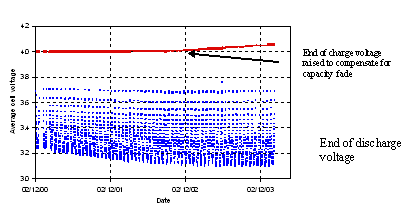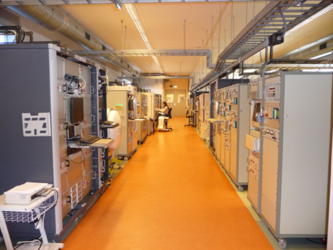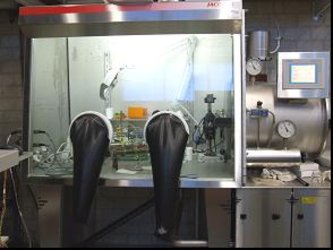Promise of new materials
But maintaining Europe’s position in this field means researching follow-on technologies, with particular interest in new materials. “Current lithium-ion batteries can be improved in energy density at the cell level,” explains Ms. Simon. “Up to 250 watt-hours per kg can be produced by the use of new high voltage materials (> 4.5 V), such as spinel oxides for positive electrodes. Improved negative electrodes have been reported using, for instance, tin oxide nano-powder and silicon-carbon nanocomposite materials.
Tailor-made nanostructured materials possess far higher surface areas than standard materials, so they can be used to coat electrodes to enhance the capacities. The ionic conductivity and mechanical properties of gelled electrolyte polymers can also be improved by incorporating nano-sized particles into the polymer, such as ceramics or micro-porous zeolites. On the downside, the high surface area materials also speed up electrolyte degradation, shortening overall battery life – highlighting a need for continued research.
Long-term developments

For the future, ESA’s Energy Storage section is also interested in research into fuel cells, which are seen as a key long-term technology for human space travel and lunar colonies. A fuel cell is a kind of battery that is supplied with typically hydrogen and oxygen, which would produce drinkable water as a useful byproduct to astronauts. The Battery Test Centre at ESTEC includes a Fuel Cell Test Facility.
Non-chemical energy storage methods are also of long-term interest, ranging from nuclear batteries to the flywheels as found in clockwork radios.
More information
Evelyne Simon, Head of Energy Storage section
Evelyne.Simon @ esa.int







